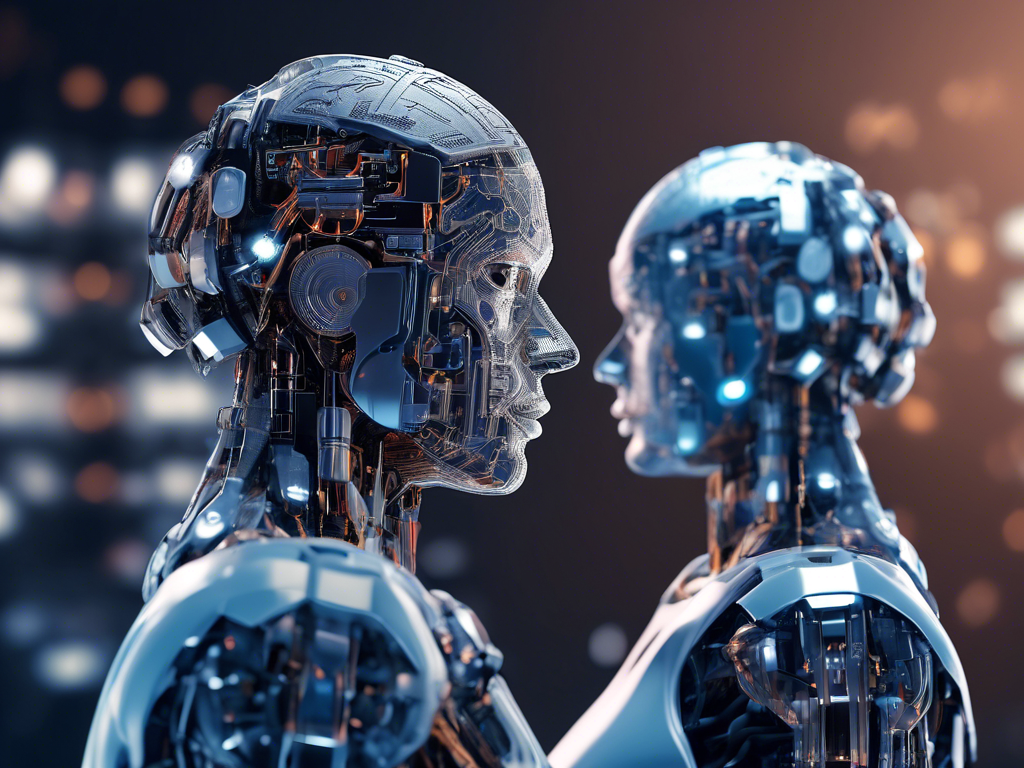Understanding Bias in AI: A Conversation Among Experts
In this engaging dialogue between artificial intelligence (AI) industry experts, the topic of bias in AI and how to effectively govern AI to unlock its full potential is explored. The panelists delve into various aspects of bias in AI, the challenges it poses, and potential solutions to address this issue.
Introducing the Panelists and Their Insights
-
Dennis Gleon, Former Political Analyst at the CIA: Dennis shares his perspective on the importance of clean data in AI systems and the challenges that analysts face in utilizing AI for precision work.
- As a recovering political analyst at the CIA, Dennis highlights the need for transparent and trustworthy data handling to enhance the capabilities of generative AI systems.
- He emphasizes the significance of cleaning data and addressing data biases as the foundational step for AI to contribute effectively to analytical work.
-
Mure, Technology Development Lead at Latimer: Mure discusses how Latimer, a language model trained on Black history and culture, addresses bias in AI models through data augmentation and bias detection tools.
- Mure highlights the challenges posed by biases in data, labeling, and algorithms, emphasizing the need for comprehensive bias detection mechanisms in AI systems.
- He shares Latimer’s approach to incorporating diverse data sources and developing bias detection tools to provide users with a reference for addressing bias in AI models.
- Kim, UX and Design Researcher with a Focus on Computational Rhetoric: Kim delves into the linguistic and cultural diversity in the Caribbean, proposing it as a testing ground for addressing biases and enhancing AI models.
- Kim shares insights on the linguistic nuances and cultural richness of the Caribbean region, highlighting the importance of inclusive representation in AI data sources.
- She challenges the prevailing narratives on bias in AI and calls for a shift towards new ontologies and frameworks for discussing transformative AI technologies.
Exploring Bias in AI Models: Challenges and Solutions
-
Data Bias in AI Models: The panelists acknowledge the prevalence of biases in AI models stemming from data, human labeling, and algorithmic processes, underscoring the need for transparent and diverse data sources.
- Addressing biases in data and algorithmic processes is fundamental to enhancing the accuracy and fairness of AI models across various applications.
- The panelists highlight the subtle nature of biases and the significance of developing advanced bias detection tools to mitigate bias effectively in AI systems.
- Cultural and Linguistic Diversity in AI: Kim emphasizes the importance of linguistic and cultural diversity in training AI models, advocating for the inclusion of underrepresented voices and histories in AI datasets.
- Leveraging diverse data sources, such as those from the Caribbean region, can enrich AI models and promote inclusive representation in AI technologies.
- The panelists discuss the potential impact of AI on preserving endangered languages and cultural heritage, highlighting the broader implications of bias in AI governance.
Hot Take: Rethinking Governance in AI Systems
In reflecting on the conversation, the panelists raise critical questions about the design and governance of intelligent systems in the context of AI. They challenge the audience to consider who should have the authority to decide how AI systems behave and the ethical implications of AI governance decisions.
- Key Takeaways: The panelists stress the need for transparent, inclusive, and bias-free AI systems to address the complexities of bias in AI models and promote ethical and fair governance practices.
- Governance in AI is not just a technical challenge but a human-centered issue that requires careful consideration of diverse perspectives and voices in designing AI systems.
- The future of AI governance hinges on collaborative efforts to address biases, enhance transparency, and empower stakeholders to shape the behavior of AI systems responsibly.





 By
By
 By
By


 By
By
 By
By